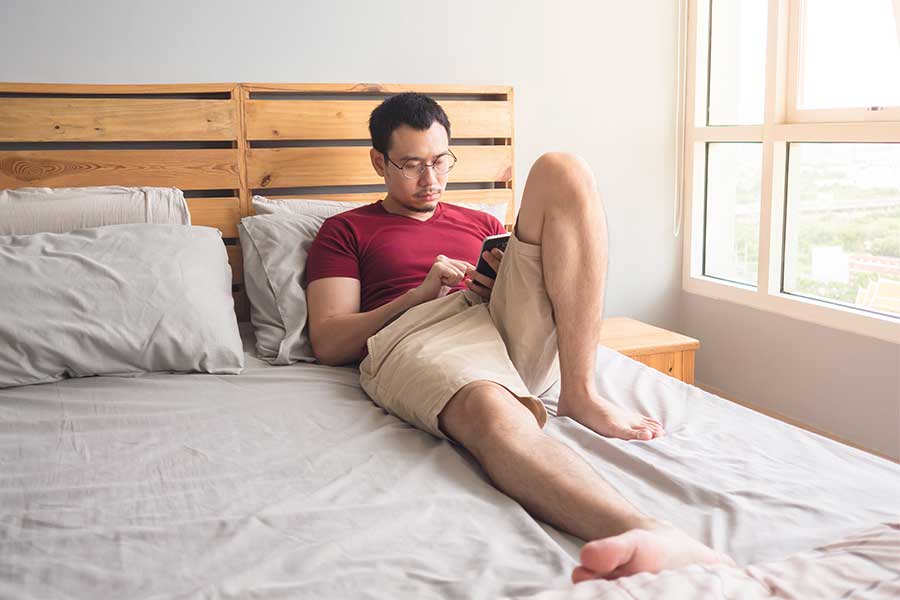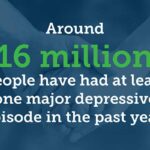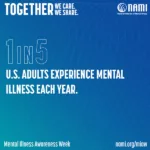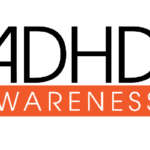
If you feel stressed, depressed or anxious after scrolling on your phone, there may be good reason why. The type of media you’re consuming, and which social media platforms you’re using may be affecting your mood.
Recent news coverage has been full of studies examining the link between social media usage and increased depression, anger, and anxiety. But what are researchers actually learning about how Facebook, TikTok, and Instagram are affecting people? And what can you do if you think social media is making you depressed?
Who Is Using Social Media?
Over the past two decades, our lives have increasingly moved online, and the COVID-19 pandemic accelerated this trend.
Social media is used in some form or another by nearly everyone, but some platforms are geared more towards one demographic than another. For example, just over 40% of all Facebook users are over 35 years old, while 78% of Snapchat users are under 35. TikTok also trends younger, with nearly 47% of its users being under 30 years old.
“Social media” has become a catch-all phrase for a range of digital platforms in use by billions of people around the world. The most instantly recognizable names in social media include Facebook, Instagram, TikTok, Twitter, and Snapchat, but many studies of social media also include apps like YouTube and WhatsApp.
Feeling Depressed After Social Media Usage? You’re Not Alone.
If you feel more depressed after using TikTok, Snapchat, or Facebook, you’re in good company according to a large November 2021 study reported in the JAMA.
Researchers found that many “individuals with minimal depressive symptoms on initial survey who reported use of Snapchat, Facebook, or TikTok were more likely to report increased levels of depressive symptoms on a later survey.”
In the most simple terms, these results suggest that some forms of social media use “preceded worsening depressive symptoms.”
What’s particularly interesting about these findings is that age appears to have a direct correlation on whether specific social media platforms affect mood. The JAMA study found that adults over 35 reported feeling more depressed after using TikTok and Snapchat, but those under 35 did not report a similar decline in their mood.
Conversely, participants over 35 years old did not report any statistically significant depression symptoms after using Facebook, but those under 35 did.
In a 2020 of existing literature on the effects of social media use on mental health, The National Institutes of Health found that that social media is “aggravating mental health problems” and called for additional exploration into the issue. With 1 in 5 U.S. adults living with mental illness and the prevalence of social media in our lives, it is essential to gain a deeper understanding of how to mitigate its negative effects on our mental health.
Our Experienced Team of Psychiatrists Can Help!
We know that taking the first step can be difficult.
Our highly-trained psychiatrists and therapists offer a comprehensive and confidential approach to private, outpatient psychiatric care. Whether this is your first time seeking psychiatric care or if you are seeking a new provider, Novum Psychiatry can help. In-person and telehealth appointments available. We accept health insurance.
Surgeon General’s Mental Health Advisory
The Surgeon General’s 2021 Advisory Protecting Youth Mental Health notes that “active” users (those who comment or create content and videos) are less likely to report increased depression, while “passive” users (those who scroll without interacting or allow videos to auto-play) are more likely to feel more depressed after being online. Other studies have failed to find any statistically significant correlation between depression or anxiety and social media usage. These differences in findings may be attributed to the wide range in usage habits and the content each user is exposed to while on any given platform.
It’s important to keep in mind that correlation does not equal causation. Which is to say, just because two things happen together (correlation), it doesn’t necessarily mean that one causes the other (causation).
Is Social Media Making My Depression and Anxiety Worse?
If you’re worried that social media usage is making you depressed or anxious, it may be helpful to keep a mood journal.
Jotting down your mood at consistent intervals throughout the day is a simple and powerful tool for identifying triggers for negative feelings. Note when and for how long you were using each social network will help you identify if your mood worsens or improves after using social media, and which platform(s) affect you the most.
There are many mood charts and journals available online, here are two to get you started:
Simple Daily Mood Chart
From Black Dog Institute, this free Daily Mood Chart is a simple and effective way to track your mood on a scale of 1-10. Adding your comments about medications, activities, exercise, food intake, and social media usage can help you track your progress.
Weekly Mood Chart
If daily mood tracking is too much for you, you can try tracking your mood on a weekly basis. Similar to the daily mood chart, you will rate your mood using scales and note major events (medication changes, exercise, diet, etc.) as well as high energy and low energy symptoms.
There are countless online versions such as iMoodJournal, Daylio and Mood-Log.
I Know That Social Media Makes Me Angry, Depressed, or Anxious
If you find that you feel angry, depressed, or anxious after using Facebook, Instagram, Twitter, Snapchat, or TikTok, here are some steps you can try:
Limit the Number of Social Media Platforms You Use
The Wall Street Journal recently interviewed Dr. Brian Primack, professor of public health and medicine and dean of the College of Education and Health Professions at the University of Arkansas, who noted that the a higher number of platforms that an individual user accesses on any given week is associated with higher rates of depression and negative outcomes.
An important takeaway here is that by simply reducing the number of social media platforms you use, you may help mitigate the negative effects.
Delete the App(s) That Cause Depression and Anxiety
If your mood journal showed that certain platforms make you feel bad, delete them. It may not be necessary to cut out social media altogether if only one or two apps negatively affect you.
It’s important to remember that social media isn’t inherently bad. Many people report that they feel better after using their favorite platform, as it can connect them with family and friends, create a space to belong, or just provide a mental break via quick laughs or cute animals. Use the networks that make you feel good, and get rid of the ones that cause anxiety or depression.
Unfollow or Mute Trigger Accounts
If you find that you’re becoming regularly upset by posts from a specific source, such as a family member, news outlet, or hashtag you follow, don’t be afraid to unfollow, unfriend, or “hide all” content from that source.
Platforms like Facebook allow you to mute posts from groups, pages, or friends for a “cool-off” period of hours to days, or to remain friends but remove their posts from your timeline.
Set a Timer and Stick to It
If you’d like to continue using social media but just want to reduce your daily consumption, set a timer for each browsing session. Limit your scrolling time to 5, 10, or 15 minutes. This is a great way to see notifications and respond to comments without engaging in passive scrolling.
Designate a “Social Hour”
It can be helpful to also limit when you browse. Try checking your social networks only once or twice per day at a set time. Avoiding social media scrolling in bed may reduce feelings of anxiety and hopelessness.
Use Your Resources
Cutting down on your social media consumption may not be enough. If you’re struggling from worsening depression, thoughts of suicide, or anxiety that disrupts your daily activities, don’t ignore or underplay your symptoms.
Take advantage of the resources available to you. Talk to trusted friends and family about how you’re feeling and be honest about the support you need. If you’re in crisis and don’t know where to turn, please call the National Suicide Prevention Hotline at 1-800-273-8255. The Trevor Project provides 24 hour phone and text support to LGBTQ youth.
Help is available!
Our Plainville and Sudbury offices are accepting new patients for in-person and telemedicine appointments for residents of Massachusetts and Rhode Island. We also take a wide range of health insurance plans, including Medicare.
If you are struggling with anxiety or depression or need help reducing your social media consumption, request your confidential evaluation today.





